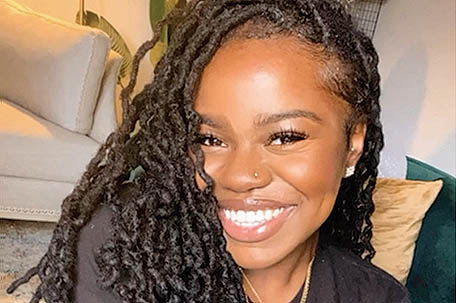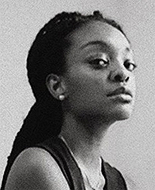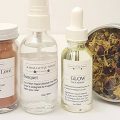
By Danaé Reid

Philadelphia’s own Ugonwa Anyanwu is yet another millennial that falls under the umbrella of the entrepreneur.
As a clothing designer, master loctitian, hair product curator and more, Ms. Anyanwu has been committed to Her, her brand, Shop Shabazz, for more than a decade.
At the age of 13, she had the foresight that not many adolescents are able to achieve, and now here she is 10 years later, actively growing her brand and expanding her knowledge and reach as it pertains to Black people and Black hair.
DR: Shop Shabazz started a few years ago with clothes and has now been transformed into this conglomerate of both products and services. When did you make the decision to crossover into doing hair? Was this an easy or difficult transition for you? Furthermore, how/why loc extensions specifically?
UA: Shop Shabazz actually started when I was 13. I had an Etsy account where I was selling handmade jewelry and hair adornments. As a child I never received an allowance so I used this as a way to fund my thrift store addiction at the time.
I have always dreamed of a world where women and men could stand in their blackness unapologetically, so all of ShopShabazz’s transitions have been fairly simple. I love afro kinky hair in its many forms. I mean, our hair looks beautiful even in a matted state. How freaking extraordinary is that? Loc extensions and loc care gives me the opportunity to curate positive black experiences surrounding kinky hair, something society actively and consciously/subconsciously tries to take from us every single day.
DR: Please explain what loc extensions are for those who do not know. Tell us more about how your business works.
UA: Shop Shabazz encompasses loc care, organic hair products, apparel and loc extensions. Loc extensions are custom made extensions that are made out of 100% human hair. They are cultivated to look and feel like naturally grown, matured locs. Our loc extensions can be added to loose natural hair, existing locs to add length, or for repairs on broken locs. Each loc is specially crafted. Clients can determine the color, size and length of their locs.
DR: Going back to the merch you started creating a few years back, one piece I vividly re-member is one that encourages people to use the word “locs” instead of dreads. Why is it important to you that people make that distinction and understand the difference between the two terms?
UA: I started the “Locs Not Dreads” T-Shirts due the fact that the word “dreadlocks” originates from the word “dreadful” which is what colonizers thought when they first saw locs. So I personally prefer to refer to my hair as locs.
DR: Locs are said to contain both mental and spiritual energies, do you believe that that’s the case? Why or why not? Explain.
UA: Yes. I believe that there is power and strength in hair. Locs are a transducer of energy. I rarely let people touch my hair, mainly because I’m not sure what kind of energy they hold at the time. Often times when people with locs want to “start over” or enter a new phase of life the first thing they do is cut their hair. It is because they are freeing themselves of the energy they once weaved into their hair.
DR: I’ve noticed that Black hair trends in general are so much more diversified than they used to be. Do you attribute this shift to the success of your business? What do you believe has aided in the success you’ve seen in such a short span of time?
UA: I believe that more and more people are beginning to be in tune with their blackness and appreciate styles that reflect their natural texture as opposed to a Eurocentric look.
DR: We’ve seen so much hair discrimination throughout the curation of our lives, but more recently, people with locs have specifically been a target. Why do you think that is?
UA: I believe people with locs are being targeted due to Eurocentric ideals of professionalism and beauty. Locs are believed to be unkempt and dirty when in fact they are the contrary. Try googling unprofessional hairstyles today and you’ll be shocked by what you see.
DR: You’ve recently premiered a line of hair care products, what is the process of making these products like? Who do you have in mind when you create these oils/serums/etc.?
UA: Yes, so I created Mmanu, which is the igbo word for “oil” after noticing the impact that my products were having on my clients. Personally, I’ve done an extensive amount of research over the years on products that alleviate dryness and aid in hair growth especially for natural hair. I’m currently working on a new addition that I’m really excited about! It’s a hair mist that’ll work as a refresher spray that you can use before applying your Mmanu oil.
DR: What do you believe is up next for Shop Shabazz?
UA: Recently, I went to Atlanta where I hosted my first Master Loc Extension Classes. Once the pandemic passes and COVID is a thing of the past, I look forward to expanding my knowledge and hosting more classes in different cities.

















Leave a Comment